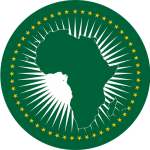It was mostly overshadowed by the debt crisis in places like Zambia, but last week saw a major milestone in China-Africa relations. It was the twentieth anniversary of the Forum on China-Africa Cooperation (FOCAC). In some ways, FOCAC kicked off a sea change in Africa’s position in the world. In others, it very much didn’t.
In the former sense, it has reshaped what business with Africa can look like. Chinese investment stock in Africa increased nearly hundred times between 2000 and 2019. FOCAC acted as the conduit for hundreds of billions of dollars of official Chinese financing, manifesting in hundreds of new rail, road and internet networks now slowly expanding across Africa.
This came with rising anxiety in Western capitals. Despite the complaints being couched in 21st century terms of transparency and sustainability, they revealed tetchy surprise that Western powers’ casual dominance of Africa was coming to an end.
But just because the complaints about transparency and sustainability were code for something else, didn’t mean these aren’t real issues. After twenty years it’s clear FOCAC has also reinforced some of the structural inequalities that keep Africa stuck in an unfair relationship with the rest of the world. All those opaquely negotiated Chinese projects contributed to all the debt now threatening the future of countless Africans. African countries are not necessarily much more empowered in their negotiations with Chinese actors than they are with Western actors, and we’re still seeing decisions about the future of African economies made in boardrooms elsewhere. Just because those boardrooms are now in Beijing as well as in London doesn’t necessarily change that much.
The brutal truth is that for most of the continent’s external partners, African weakness is a feature of the relationship, not a bug. Despite all the rhetoric, nobody is invested in making African countries more empowered in their external relationships.
Except African countries themselves. The one thing one can say for FOCAC, and the wider China-Africa relationship, is that some African governments have actually managed to use it to inch themselves towards more empowerment. It’s a slow, winding and imperfect process, but it has only been twenty years. In another twenty or forty we might see FOCAC as less a new destination and more a way-station on the route to something else – an Africa we can’t yet imagine.













